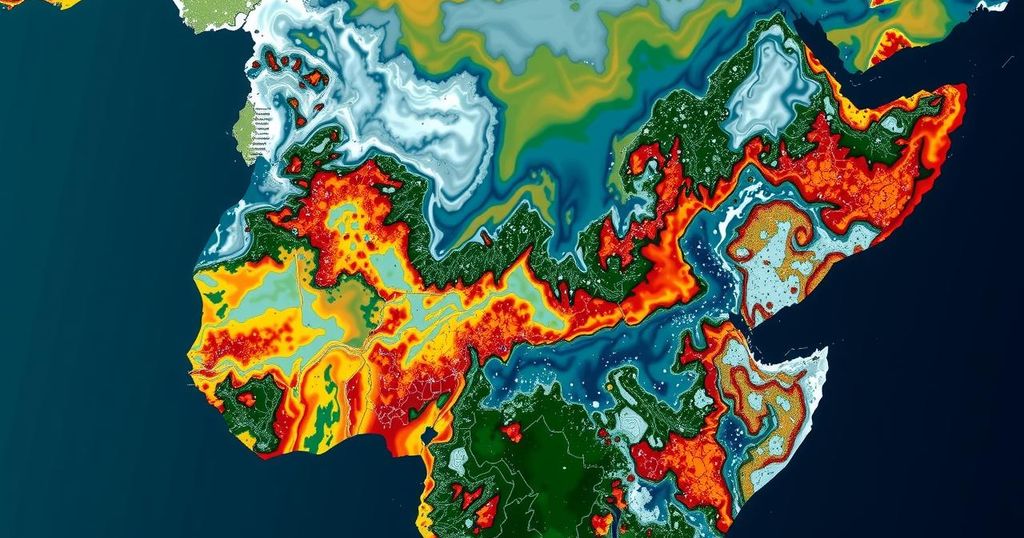Climate Change Intensifies Flooding in Africa: A Call for Action

Recent research indicates that climate change has intensified rainfall leading to catastrophic flooding in African nations. Global warming has increased rainfall by 5-20% in regions such as the Niger and Lake Chad basins. This has resulted in significant loss of life and displacement. Experts are warning of recurrent extreme weather events if global warming continues, urging for improvements in infrastructure and international aid.
Recent research conducted by a team of international scientists has revealed that human-induced climate change has significantly exacerbated rainfall levels that led to devastating floods in several African nations, specifically Cameroon, Chad, Niger, Nigeria, and Sudan. According to the findings of World Weather Attribution (WWA), global warming has increased the intensity of seasonal rains this year by approximately 5-20% across the Niger and Lake Chad basins. This intensification of rainfall poses a concerning trend, suggesting that such extreme weather patterns could become a recurrent issue should global temperatures continue to rise. Izidine Pinto, a researcher at the Royal Netherlands Meteorological Institute, emphasized the changing climate, stating, “Spells of heavy summer rainfall have become the new normal in Sudan, Nigeria, Niger, Cameroon, and Chad.” The severity of this year’s floods has been profound, resulting in the deaths of around 1,500 individuals and displacing over one million according to figures released by the United Nations aid agency OCHA. Additional complications arose as the floods overwhelmed dams in Nigeria and Sudan. Experts warn that if global warming reaches the critical threshold of 2 degrees Celsius, which could transpire as early as the 2050s, such heavy downpours are anticipated to be a yearly occurrence in the impacted areas. WWA advocates for urgent enhancements in early warning systems and the upgrade of infrastructural facilities such as dams. Joyce Kimutai, a researcher at the Centre for Environmental Policy at Imperial College in London, stated, “Africa has contributed a tiny amount of carbon emissions globally, but is being hit the hardest by extreme weather.” She highlighted the importance of the upcoming COP29 climate talks in November, urging affluent nations to provide “meaningful finance” to support affected regions.
The article addresses the growing concern of climate change and its impact on weather patterns, particularly in Africa. Recent floods have caused extensive damage and loss of life in several nations, prompting scientists to investigate the links between these extreme weather events and climate change. The research highlights how global warming not only intensifies existing weather patterns but also poses a grave threat to vulnerable regions that contribute minimally to global carbon emissions. The call for international financial support at climate summits underscores the disparity in responsibility for climate change versus the impact experienced by developing nations.
In conclusion, this assessment underscores the critical role that climate change plays in exacerbating weather extremes, particularly in Africa. The alarming increase in rainfall intensity tied to human activity highlights the urgent need for infrastructure improvements and international financial support to mitigate these devastating effects. The consensus among experts calls for proactive measures to protect vulnerable populations from the looming threats of climate-induced disasters.
Original Source: kfgo.com






